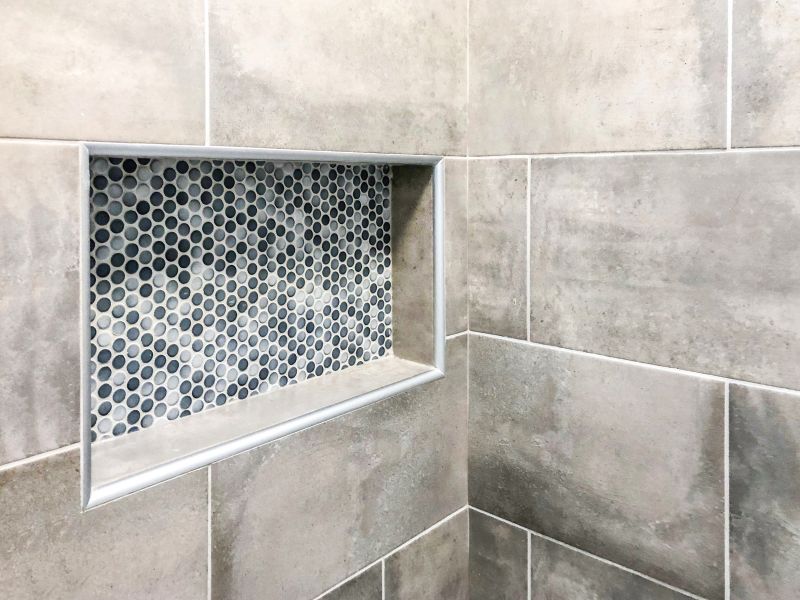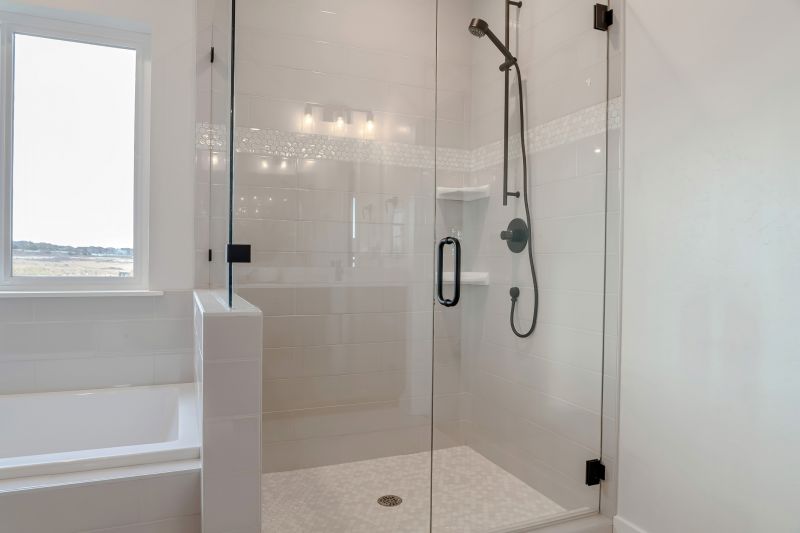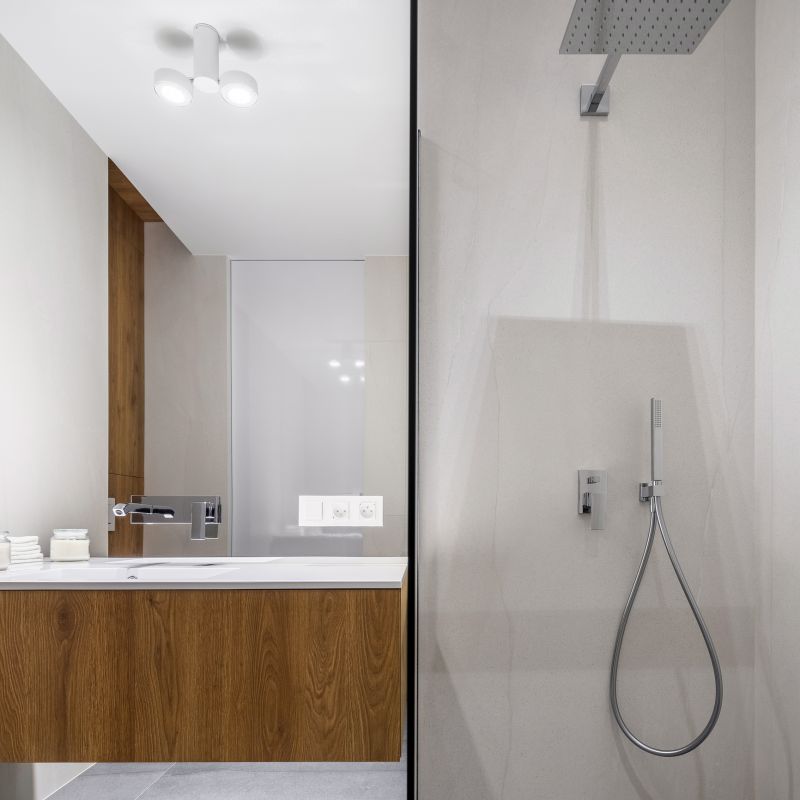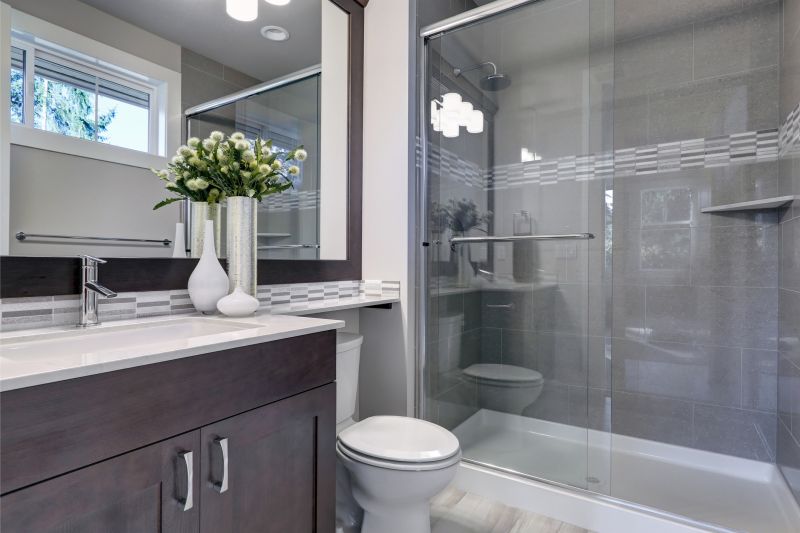Practical Small Bathroom Shower Configurations
Designing a small bathroom shower requires careful consideration of space utilization, style, and functionality. Efficient layouts can maximize limited square footage while maintaining a comfortable and aesthetically pleasing environment. This guide explores various design ideas and layout options suitable for compact bathrooms in Kenmore, WA, emphasizing practicality without sacrificing style.
Corner showers utilize space efficiently by fitting into existing corners, freeing up room for other bathroom essentials. These layouts often feature sliding or hinged doors to minimize space needed for opening and closing.
Walk-in showers with frameless glass enclosures create an open, airy feel in small bathrooms. They eliminate the need for bulky doors, making the space appear larger and more accessible.

A small shower featuring built-in niches optimizes storage without encroaching on the limited space, keeping essentials within easy reach.

A sleek glass panel design enhances the visual space, providing a modern look while maintaining an open feel.

Utilizing wall-mounted fixtures and minimal hardware helps reduce clutter and makes the shower area appear larger.

Sliding doors in corner showers maximize entry width without requiring extra space to open, ideal for tight layouts.
| Layout Type | Advantages |
|---|---|
| Corner Shower | Maximizes corner space, ideal for small bathrooms. |
| Walk-In Shower | Creates an open feel, easy to access. |
| Neo-Angle Shower | Fits into awkward corners, saves space. |
| Recessed Shower | Built into wall cavity, saves footprint. |
| Curbless Shower | Provides seamless transition, enhances space perception. |
| Sliding Door Shower | Uses minimal space for door operation. |
| Pivot Door Shower | Offers a traditional look with space-efficient opening. |
| Shower with Built-In Shelves | Optimizes storage without extra fixtures. |
Choosing the right layout for a small bathroom shower depends on the specific dimensions and existing plumbing setup. Corner showers are popular for their space-saving qualities, especially when combined with sliding doors. Walk-in designs offer a modern, open aesthetic that can make a compact space feel larger, especially when complemented with clear glass panels. Recessed showers utilize wall cavities to save space, while neo-angle configurations fit into irregular corners, maximizing every inch of available room.
Materials and fixtures play a crucial role in small bathroom shower designs. Light-colored tiles and transparent glass enclosures reflect light, enhancing the sense of space. Wall-mounted fixtures and minimal hardware reduce visual clutter, contributing to a cleaner, more open appearance. Incorporating built-in niches and shelves ensures storage needs are met without sacrificing valuable space.
Lighting is another important aspect. Proper illumination can dramatically influence the perception of space. Recessed lighting or LED strips integrated into the shower ceiling or niches provide bright, even light that makes the area feel larger and more inviting. Ventilation remains essential to prevent moisture buildup, especially in smaller, enclosed shower spaces.
Ultimately, small bathroom shower layouts should balance functionality and style. Thoughtful design choices can optimize limited space, creating a comfortable and attractive shower environment. Whether opting for a corner shower with sliding doors or a sleek walk-in with glass panels, the goal is to maximize usability while maintaining an appealing aesthetic. Proper planning and selection of materials ensure the space remains practical and visually pleasing for residents in Kenmore, WA.



